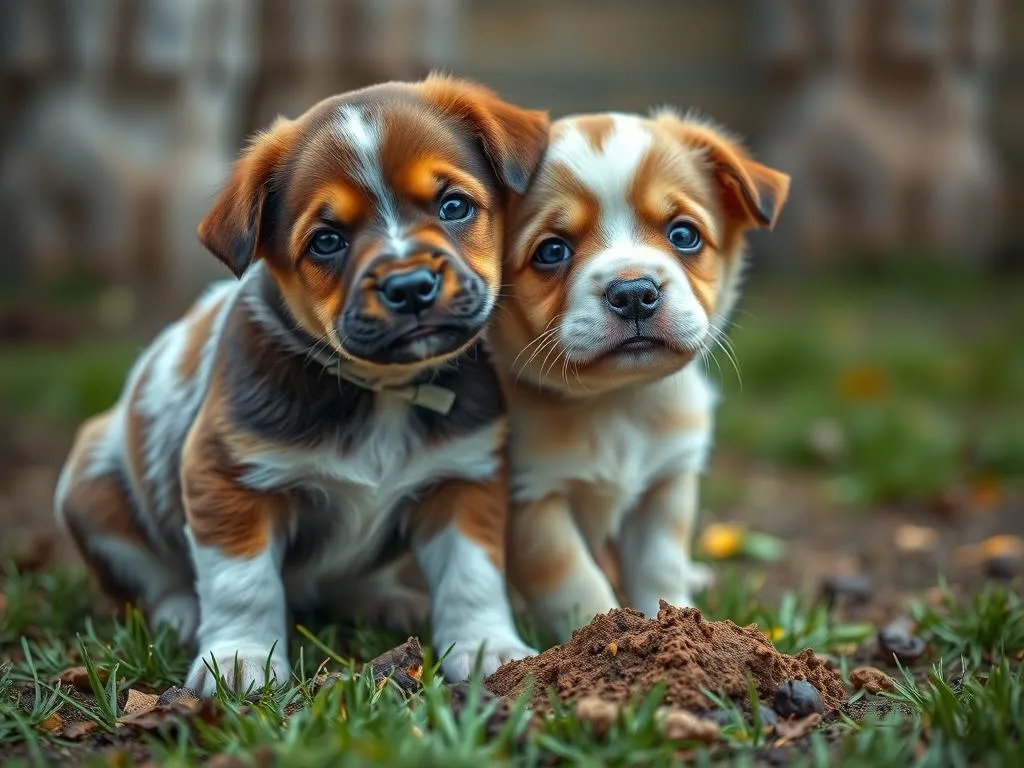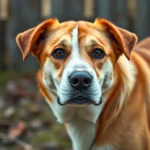
Puppies can exhibit a variety of curious behaviors, and one that often raises eyebrows is coprophagia, or the act of eating feces. This behavior is surprisingly common among puppies, leading many pet owners to wonder why their furry companions engage in such a seemingly unpleasant habit. Understanding the underlying reasons for this behavior is crucial for managing and preventing it effectively. In this article, we will explore the various factors contributing to why puppies eat poop and how you can address this issue.
Understanding Coprophagia
Coprophagia is defined as the consumption of feces. While it may seem gross to us, it’s important to differentiate between normal and abnormal behaviors in puppies. For many puppies, this behavior is often a phase of exploration and curiosity rather than a sign of a serious problem.
Typically, puppies may start engaging in coprophagia between the ages of 3 to 6 months, a time when they are naturally curious and eager to explore their environment. However, understanding the reasons behind this behavior is essential for puppy owners.
Reasons Why Puppies Eat Poop
Instinctual Behavior
One of the primary reasons puppies eat poop can be traced back to instinctual behavior. In the wild, scavenging is a natural survival tactic. Wild canines, including dogs’ ancestors, would consume feces to avoid attracting predators and to maintain a clean den. This instinct can manifest in domestic puppies, leading them to explore and sometimes consume feces as part of their natural scavenging behavior.
Nutritional Deficiencies
Another significant factor that might explain why puppies eat poop is nutritional deficiencies. Puppies require a balanced diet rich in essential nutrients for optimal growth and development. If their diet lacks certain vitamins, minerals, or proteins, they may seek out feces to fulfill these nutritional gaps. Common deficiencies in a puppy’s diet that could lead to coprophagia include:
- Vitamins: Lack of certain vitamins can prompt puppies to seek out alternative sources, including feces.
- Digestive Enzymes: Puppies may consume their own or other animals’ feces if they are not adequately digesting their food, suggesting a need for digestive support.
- Protein: Insufficient protein intake can lead to abnormal cravings, including the consumption of feces.
Attention-Seeking Behavior
Puppies are social animals and often crave attention from their owners. In some cases, a puppy may engage in coprophagia as a means to garner attention, even if that attention is negative. For instance, if an owner reacts strongly—shouting, scolding, or even laughing—when they catch their puppy eating poop, it may reinforce the behavior. The puppy learns that this action effectively gets a reaction, encouraging them to repeat it.
Curiosity and Exploration
Puppies are naturally curious creatures. They explore their world through their senses, particularly taste and smell. Feces can contain various intriguing scents that pique a puppy’s interest. This exploration is a normal part of their development, and while it may seem distasteful to us, it is often simply a way for puppies to learn about their environment.
Stress and Anxiety
Stress and anxiety can also lead to coprophagia in puppies. Just like humans may engage in nervous habits, puppies may eat poop when they are feeling stressed or anxious. Common triggers for anxiety in puppies include:
- Change in Environment: Moving to a new home or the arrival of new family members can cause stress.
- Lack of Socialization: Puppies that are not adequately socialized may feel anxious in new situations.
- Separation Anxiety: Some puppies may engage in coprophagia when left alone for extended periods.
Mimicking Other Dogs
Puppies are impressionable and often learn by observing their peers. If they see older dogs engaging in coprophagia, they may mimic this behavior. This can happen during playdates or at dog parks, where puppies are exposed to a variety of behaviors from other dogs.
Health Implications of Coprophagia
Potential Health Risks
While coprophagia may be a common behavior, it can pose several health risks for puppies. Feces can contain harmful pathogens and parasites, including but not limited to:
- Giardia
- Coccidia
- Roundworms
- Hookworms
Consuming feces can lead to gastrointestinal issues, infections, and long-term health concerns, particularly if the feces belong to other animals. Puppies that engage in coprophagia may be at increased risk for these health issues, making it vital for owners to address the behavior promptly.
Signs of Illness Related to Coprophagia
If your puppy frequently engages in coprophagia, it’s crucial to monitor their health closely. Signs that may indicate an illness related to this behavior include:
- Vomiting
- Diarrhea
- Lethargy
- Loss of Appetite
- Weight Loss
If you notice any of these symptoms, it’s essential to consult a veterinarian for an evaluation. Early intervention can help prevent more serious health issues down the line.
Strategies to Prevent Puppies from Eating Poop
Training Techniques
One effective strategy for preventing coprophagia is implementing training techniques. Teaching basic commands such as “leave it” or “no” can discourage your puppy from eating feces. Always use positive reinforcement when your puppy responds appropriately. Reward them with treats or praise when they obey commands, reinforcing the desired behavior.
Environmental Management
Keeping your environment clean is another crucial step in preventing coprophagia. Regularly clean your yard and remove any feces promptly. During bathroom breaks, supervise your puppy closely and use a leash to prevent them from wandering off and consuming feces.
Dietary Adjustments
Ensuring your puppy is on a balanced diet can help address nutritional deficiencies that may lead to coprophagia. Consult your veterinarian to discuss the best food options for your puppy’s age, breed, and health. In some cases, adding supplements such as digestive enzymes or probiotics may help improve overall digestion and reduce the urge to eat feces.
Behavioral Modifications
If your puppy’s coprophagia is linked to stress or anxiety, addressing these underlying issues is essential. Providing a secure environment, engaging in regular exercise, and offering mental stimulation can help alleviate anxiety. For more severe cases, consider consulting with a dog trainer or a behaviorist to develop a tailored behavior modification plan.
When to Seek Professional Help
If your puppy’s coprophagia persists despite your best efforts, it may be time to seek professional help. Signs that indicate a need for intervention include:
- Persistent Coprophagia: If the behavior continues despite training and environmental management.
- Health Issues: If your puppy shows signs of illness, consult a veterinarian immediately.
- Severe Anxiety: If your puppy exhibits signs of severe anxiety or stress-related behaviors.
Types of professionals who can assist include veterinarians, dog trainers, and animal behaviorists. They can provide valuable insights and tailored strategies to address coprophagia effectively. Behavior modification programs can also be beneficial in changing undesirable behaviors.
Conclusion
Understanding why puppies eat poop is crucial for effective management and prevention of this behavior. From instinctual scavenging to potential nutritional deficiencies, several factors contribute to coprophagia in puppies. By implementing training techniques, maintaining a clean environment, ensuring a balanced diet, and addressing underlying anxiety, puppy owners can significantly reduce this behavior.
Patience and understanding are key to guiding your puppy through this phase. With the right strategies and support, you can help your furry friend navigate their early years while fostering healthy habits.









